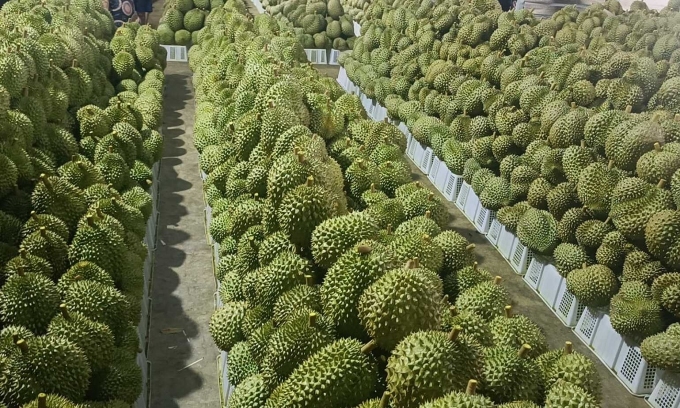Agricultures, Foods, News & Event
Japan destroys five tons of durian, chili from Vietnam

Over five tons of Vietnamese durian and chili were destroyed in Japan in October for containing a higher dose of pesticide than the country’s standard.
The batch of 1.4 tons of durian was exported on Oct. 5 by a company in Vietnam to Japan, where it was found to contain 0.03 parts per million (ppm) of procymidone over the Japanese standard of 0.01 ppm, according to a recent report by the commercial counselor of Vietnam in Japan.
The batch of 4 tons of chili contained 0.2 ppm of tricyclazole and 0.03 ppm of hexaconazole against the standards of 0.01 ppm for both.
Japanese quarantine authorities destroyed all the produce.
Procymidone is used to kill unwanted ferns. Tricyclazole kills fungus and hexaconazole is used to prevent powdery mildew and other diseases.
Do Van Dung, head of faculty of community health, Ho Chi Minh City University of Medicine and Pharmacy, said that the three pesticides are approved in many countries, and their harmful effects have only been researched on animals.
It is therefore normal for these pesticides to be present on produce exported to Japan, and the fact that they exceeded Japanese standards does not mean that they would harm Vietnamese consumers.
Some countries, such as Australia, allow a procymidone level in garlic by up to 5 milligrams per kilogram against Japan’s 0.1 mg/kg.
Ta Duc Minh, the commercial counselor of Vietnam in Japan, told VnExpress that he has informed Vietnamese authorities to prevent a similar incident in the future.
Many other developed countries also fail to meet Japan’s standards from time to time as this is a difficult market that requires high quality.
Japan was Vietnam’s third biggest export market of agriculture, forestry and seafood in the first 10 months, accounting for 7.4% of the total.
Vegetables and fruits exports rose 6.6% year-on-year to $150 million.
Durian exports to Japan fell 12.3% year-on-year to $1.3 million in the period.
Source: Japan destroys five tons of durian, chili from Vietnam – VnExpress International

